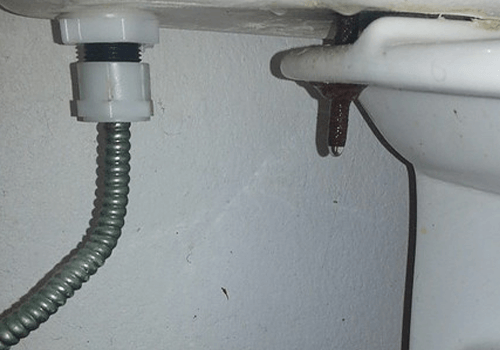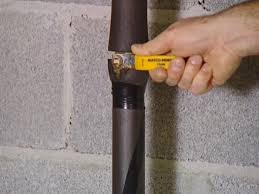Everyone has got their own individual piece of advice in relation to Prevent Freezing and Bursting Pipes.

All homeowners that live in warm environments need to do their best to winterize their pipelines. Failure to do so can spell catastrophe like frozen, split, or burst pipes.
Turn On the Faucets
When the temperature level drops and also it appears as if the icy temperature will certainly last, it will aid to switch on your water both indoors and also outdoors. This will maintain the water moving through your plumbing systems. On top of that, the activity will certainly decrease the cold process. Significantly, there's no need to transform it on full force. You'll wind up squandering gallons of water this way. Instead, aim for concerning 5 drops per min.
Open Cupboard Doors Hiding Plumbing
When it's cold outside, it would certainly be helpful to open cupboard doors that are masking your pipes. Doing this small trick can maintain your pipelines cozy and limit the potentially unsafe end results of freezing temperature levels.
Require Time to Wrap Exposed Water Lines
One simple and also awesome hack to heat up icy pipes is to cover them with warm towels. You can cover them initially with towels. After protecting them in position, you can pour boiling water on the towels. Do it slowly to allow the towels absorb the fluid. You can also utilize pre-soaked towels in hot water, simply don't forget to wear protective gloves to protect your hands from the warmth.
Try a Hair Clothes Dryer or Warmth Weapon
When your pipelines are nearly freezing, your trusty hair dryer or heat gun is a godsend. If the hot towels do not aid dislodge any type of working out ice in your pipelines, bowling warm air directly into them may assist. You might finish up damaging your pipelines while trying to melt the ice.
Turn off Water When Pipelines are Frozen
If you see that your pipes are totally icy or virtually nearing that phase, turn off the main water valve immediately. You will usually locate this in your basement or laundry room near the heating system or the front wall surface closest to the street. Transform it off right away to avoid more damages.
Don't neglect to close external water resources, also, such as your connection for the garden residence. Doing this will certainly prevent extra water from filling up your plumbing system. With more water, even more ice will load up, which will ultimately lead to break pipes. If you are unsure regarding the state of your pipelines this winter months, it is best to call a specialist plumber for an examination. Taking this aggressive technique can save you countless dollars out of commission.
All home owners who live in temperate climates must do their finest to winterize their pipes. Failure to do so can mean catastrophe like icy, fractured, or burst pipelines. If the warm towels do not assist displace any clearing up ice in your pipelines, bowling warm air straight into them might assist. Turn off the major water shutoff quickly if you notice that your pipes are entirely icy or virtually nearing that phase. With more water, more ice will load up, which will eventually lead to break pipelines.
PREVENT YOUR PIPES FROM FREEZING THIS WINTER
A Leading Cause of Property Damage
When the weather is taking a deep nose dive into the cold dreary days, the risk of your pipes freezing and potentially bursting skyrockets. Unfortunately, during these cold dreary months, burst pipes are the most common denominator for property damage. The pipes that are most at the risk are those that are in areas where it is most cold in your home. For instance, pipes located in interior places such as basements, attics, and your garage. Unfortunately, that doesn’t mean that the pipes running through your cabinets or exterior walls can’t freeze. Good news, however, is that you can do things to help prevent pipes from freezing.
How to Prevent Pipes From Freezing
Once the temperature starts to drop during the winter, you should be taking the proper measures needed to ensure that your pipes stay warm and that there is circulation of water through them. Some steps that experts may recommend could go against your better judgement when it comes to saving water and heat. However, it would go without saying that when expenses are compared, damaged pipes could put a bigger dent in your wallet than a water bill.
What Can I Do?
Keep your garage door closed. This is very important, especially if you have water supply lines running through your garage. Open your kitchen and bathroom cabinets to allow warm air to circulate through them. Allow air circulation throughout your home. Keeping the interior doors open will once again allow the warm air to circulate inside your home. Ensure your thermostat is running the same temperature throughout the night and day. If you plan to be away from home during the cold months, set your temperature no lower than 55° F. This should provide enough heat to keep the pipes warm and prevent any remaining water inside the pipes from freezing. For more of a long-term solution, add insulation to attics, basement, and other crawl spaces around your home. By allowing your faucet to drip, it will alleviate pressure in the system. This is important because the pressure that is created between the blockage and the faucet can potentially cause the pipes to burst. Allowing the faucet to drip will prevent the pressure from building up, therefore keeping the pipes from bursting. Seal any cracks, openings, and crawl spaces around your home to prevent cold air from coming inside. This keeps your pipes-not to mention your home-warmer and less susceptible to issues caused by freezing temperatures. For the pipes in your home that are easily accessible, applying electrical tape to them might prevent them from freezing over. This is a quick fix, as you can apply the tape directly to the pipe. There are two options for heating tapes. One turns on and off by itself when it senses heat is needed. The other type of heating tape needs to be applied when heat is needed and removed when not necessary. If you have exposed pipes in your home, you can check this website to take a look at a few options that would be available at a shop near you.

Do you appreciate reading about Prevent Freezing and Bursting Pipes? Put a remark below. We will be interested to find out your thoughts about this page. We hope that you come back again in the future. Sharing is caring. Helping others is fun. Thank you for going through it.
Click Here To Read More